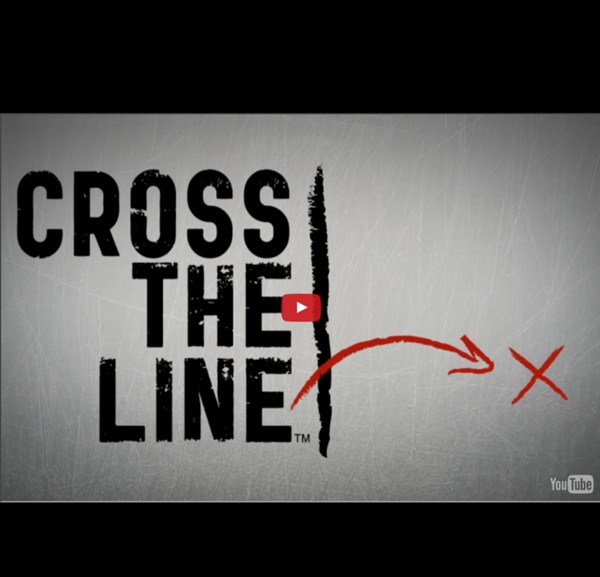



next test 100 Reasons to Mind Map 100 examples of how you can use mindmapping whether completely new to mind maps or a seasoned pro. I hope the list helps generate ideas for you. 100 Reasons to Mind Map 1. Explore a subject 2. Study & learn a new topic, culture or country 3. Want to share your Mind Maps with others? Here are the 100 reasons on one page:
parents.tvo How can we tell if a child will be successful in life? Are high grades an indicator? Or are there other factors that lead to your child’s success? Paul Tough thinks so. Tough is the author of How Children Succeed: Grit, Curiosity and the Hidden Power of Character. He was the keynote speaker at this year’s 2014 People for Education conference. Tough says that in the past couple of decades we’ve been defining success for children far too narrowly, focusing on their short-term tests scores of cognitive skills such as math and literacy. “Those skills certainly matter,” says Tough, “but what scientists are discovering now is that the kind of skills that lead to long-term success in children, that lead them to be happy, successful motivated adults, involve a much broader set of skills.” What are these broader skills? Building Grit in Your Child Tough cites the work of University of Pennsylvania researcher and psychologist Angela Duckworth. Curious Kids Want to hear more from Paul Tough?
Mindsetsclassroom - home Growth Mindset Quote Instilling Perseverance in Children by Leah Davies, M.Ed. By Leah Davies, M.Ed. Perseverance means having the self-discipline to continue a task in spite of being confronted with difficulties. Albert Einstein said, “It’s not that I'm so smart, it’s just that I stay with problems longer.” The following are classroom activities that promote perseverance: 1. 2. 3. Have them answer the following questions in their report: How did he or she show perseverance? 4. 5. 6. 7. 8. 9. 10. 11. 12. What was the most important thing that you learned from your mother or father? Ways Educators Can Encourage Perseverance in Students 1. Since perseverance is a necessary ingredient for student achievement, it needs to be encouraged. inShare Used by permission of the author, Leah Davies, and selected from the Kelly Bear website [www.kellybear.com], 8/05. Click Below for More.
Growth Mindset Quote The Secret to Raising Smart Kids A brilliant student, Jonathan sailed through grade school. He completed his assignments easily and routinely earned As. Jonathan puzzled over why some of his classmates struggled, and his parents told him he had a special gift. In the seventh grade, however, Jonathan suddenly lost interest in school, refusing to do homework or study for tests. Our society worships talent, and many people assume that possessing superior intelligence or ability—along with confidence in that ability—is a recipe for success. The result plays out in children like Jonathan, who coast through the early grades under the dangerous notion that no-effort academic achievement defines them as smart or gifted. Praising children's innate abilities, as Jonathan's parents did, reinforces this mind-set, which can also prevent young athletes or people in the workforce and even marriages from living up to their potential. People can learn to be helpless, too, but not everyone reacts to setbacks this way.
Science Behind Growth Mindset Over 30 years ago, Carol Dweck and her colleagues became interested in students' attitudes about failure. They noticed that some students rebounded while other students seemed devastated by even the smallest setbacks. After studying the behavior of thousands of children, Dr. Dweck coined the terms fixed mindset and growth mindset to describe the underlying beliefs people have about learning and intelligence. When students believe they can get smarter, they understand that effort makes them stronger. Recent advances in neuroscience have shown us that the brain is far more malleable than we ever knew. At the same time that these neuroscientific discoveries were gaining traction, researchers began to understand the link between mindsets and achievement. What does growth mindset teaching look like in the real world?
How Parents Talk About Failure Affects Children's Success Saying "That's OK, you're still good at writing" may not be the best strategy, researchers say. CAP/Getty Images hide caption toggle caption CAP/Getty Images Saying "That's OK, you're still good at writing" may not be the best strategy, researchers say. Is failure a positive opportunity to learn and grow, or is it a negative experience that hinders success? "Parents are a really critical force in child development when you think about how motivation and mindsets develop," says Kyla Haimovitz, a professor of psychology at Stanford University. Although there's been a lot of research on how these forces play out, relatively little looks at what parents can do to motivate their kids in school, Haimovitz says. But communicating that message to children is not simple. "Parents need to represent this to their kids in the ways they react about their kids' failures and setbacks," Haimovitz says. Further, taking the learn-from-failure message too far might backfire eventually.
What is Mindset Every so often a truly groundbreaking idea comes along. This is one. Mindset explains: Why brains and talent don’t bring success How they can stand in the way of it Why praising brains and talent doesn’t foster self-esteem and accomplishment, but jeopardizes them How teaching a simple idea about the brain raises grades and productivity What all great CEOs, parents, teachers, athletes know Mindset is a simple idea discovered by world-renowned Stanford University psychologist Carol Dweck in decades of research on achievement and success—a simple idea that makes all the difference. In a fixed mindset, people believe their basic qualities, like their intelligence or talent, are simply fixed traits. In a growth mindset, people believe that their most basic abilities can be developed through dedication and hard work—brains and talent are just the starting point. Teaching a growth mindset creates motivation and productivity in the worlds of business, education, and sports.